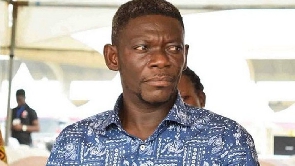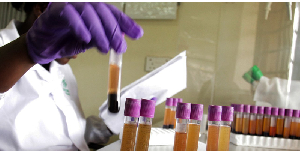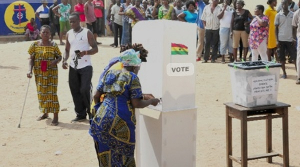Business News of Thursday, 18 April 2024
Source: www.ghanaweb.com
NPP governments have managed Ghana's debt better than NDC - Danquah Institute
Policy think tank Danquah Institute (DI) has emphasised that the governing New Patriotic Party’s performance has always resulted in better debt management, compared to the opposition National Democratic Congress (NDC).
In a second edition of the Institute’s planned monthly media encounter held on Wednesday, April 17, 2024, DI's Head of Research, Dr. Frank Bannor, pointed out that, following the attainment of the HIPC completion and external debt relief, Ghana witnessed a remarkable decline in its public debt to GDP ratio, from 182% in 2000 to 32% by the end of 2008 under the John Agyekum Kufuor administration.
Using statistics and data from the Bank of Ghana and the Ministry of Finance, he explained that the public debt, which was recorded at $8.07 billion in 2008, skyrocketed to $29.2 billion by 2016, indicating a more than threefold increase.
This surge, he said, propelled the debt-to-GDP ratio to 73.1% by the close of 2016. He stressed that this represents a growth rate, or an increase of about 261.83% in the total public debt stock under the NDC, from 2009-2016.
Dr. Bannor stressed that this rate of change indicates that on average, the NDC government added 32.75% debt to Ghana’s debt stock every year between 2009 to 2016.
He added that this trajectory was even worse between 2012 and 2016.
"The public debt, which stood at $15.3 billion in 2011, increased to $29.2 billion by the end of 2016, indicating a growth rate of 90.85% from 2012 to 2016," he pointed out.
He stated at the programme themed “Profiling & Analysis of Ghana’s Debt from 2009 to 2023,” that this astronomical increase in the debt stock represents one of the worst management of the public debt in recent times.
According to him, the public debt, which stood at $29.2 billion in 2016, had increased to $51.04 billion as of the end of 2023.
He maintained that contrary to public perception, this marks a little over one-and-a-half percent increase in the overall public debt stock under the NPP.
This rate of change, he mentioned, represents an increase of about 74.79% in the total public debt stock, compared to a growth of 262% from 2009 to 2016.
He indicated that, unlike the trajectory between 2009 to 2016, the NPP, on average, has added about 10.68% to Ghana’s debt stock every year between 2017 to date. He described it as a rate far lower than the 32.75% witnessed under the NDC.
"We employ the US dollar in our analysis due to its status as the world's primary reserve currency, and its widespread usage in international trade. Furthermore, the US dollar is recognized for its stability, maintaining its unit of account and purchasing power consistently over extended periods," he said.
He mentioned that foreign currency debt carries an exchange rate risk.
“This implies that the debt stock in local currency terms could even rise with no new borrowings," he stated.
For example, he pointed out that the public debt of $29.2 billion in 2016 would have been the equivalent of about GHc380 billion today without any additional borrowing.
Dr. Bannor said the chosen topic had become necessary because, within local commentary, contrasting viewpoints had emerged to explain the country's debt situation.
He noted that while one perspective attributes Ghana's mounting debt to factors such as corruption, incompetence and mismanagement, casting blame on COVID-19, Russian-Ukraine War and excess energy capacity payments; another faction had directed criticism towards the current government and alleging that the Government had resorted to borrowing to fulfil populist campaign promises.
Promises he cited included initiatives such as the implementation of Free Senior High School (Free SHS), the restoration of trainee allowances for teachers and nurses, the reduction or abolishment of 'nuisance' taxes, the provision of free or subsidized utilities (water and electricity) during the COVID-19 pandemic, and what some perceive as the ambitious Agenda 111 project aimed at constructing numerous hospitals across the country.
He said the difference in viewpoints underscores the complexity of Ghana's debt situation and the various factors contributing to it – prompting ongoing debate and scrutiny within the public sphere.
"As stated during the maiden edition of our press series, the Danquah Institute remains steadfast in our conviction that a thorough examination and discussion of facts, supported by rigorous research and data are essential in providing the citizens of Ghana with enhanced clarity, information, and context regarding pertinent national issues.
“Through our commitment to evidence-based discourse, we strive to foster a more informed and enlightened public discourse that promotes transparency, accountability, and progress in Ghana's socio-political landscape,” he added.
AM/SARA











